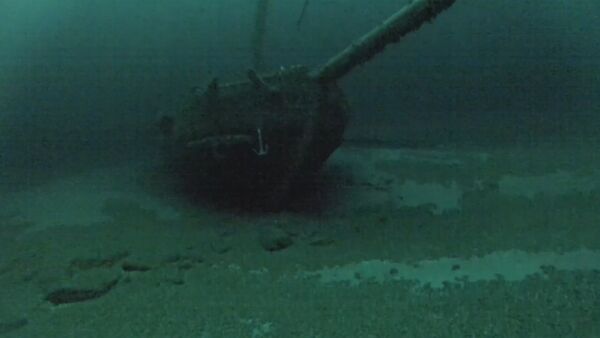Researchers from the University of Southampton's Black Sea Maritime Archaeology Project have found the world's oldest intact shipwrecked vessel, which is reportedly ancient Greek in origin and has remained undisturbed for over 2,400 years.
The ship was found roughly a mile underwater near the Bulgarian coastline and appears to be a Greek trading vessel similar to the design on the British Museum's famed "Siren Vase" artifact.
MAP scientists credit the Black Sea's oxygen-free water with preserving the vessel's condition, where they carbon-dated material from the wreckage to confirm the artifact's age.
"A ship, surviving intact, from the classical world, lying in over two kilometers of water, is something I would never have believed possible," chief investigator and archaelogy professor Jon Adams said. "This will change our understanding of shipbuilding and seafaring in the ancient world."
Researchers began the expedition in 2015 to study the effects of prehistoric sea level changes, but discovered the vessel along the way. The group scanned 800 miles of the sea bed with high-definition deep-water cameras to map the underwater terrain.
The group has made over 60 discoveries in the last three years, including Roman trading ships and a 17th century Cossack raiding fleet.
Southampton University joined efforts with the Julia and Hans Rausing Trust, Bulgaria's Centre for Underwater Archaeology in Sozopol, Sweden's Södertörn University in Stockholm, the Bulgarian Academy of Sciences, and America's University of Connecticut.
The British Museum will host the "Lost Worlds — Deeper into the Black Sea" documentary on MAP's discoveries at 1:30 — 4:00pm on October 23.

